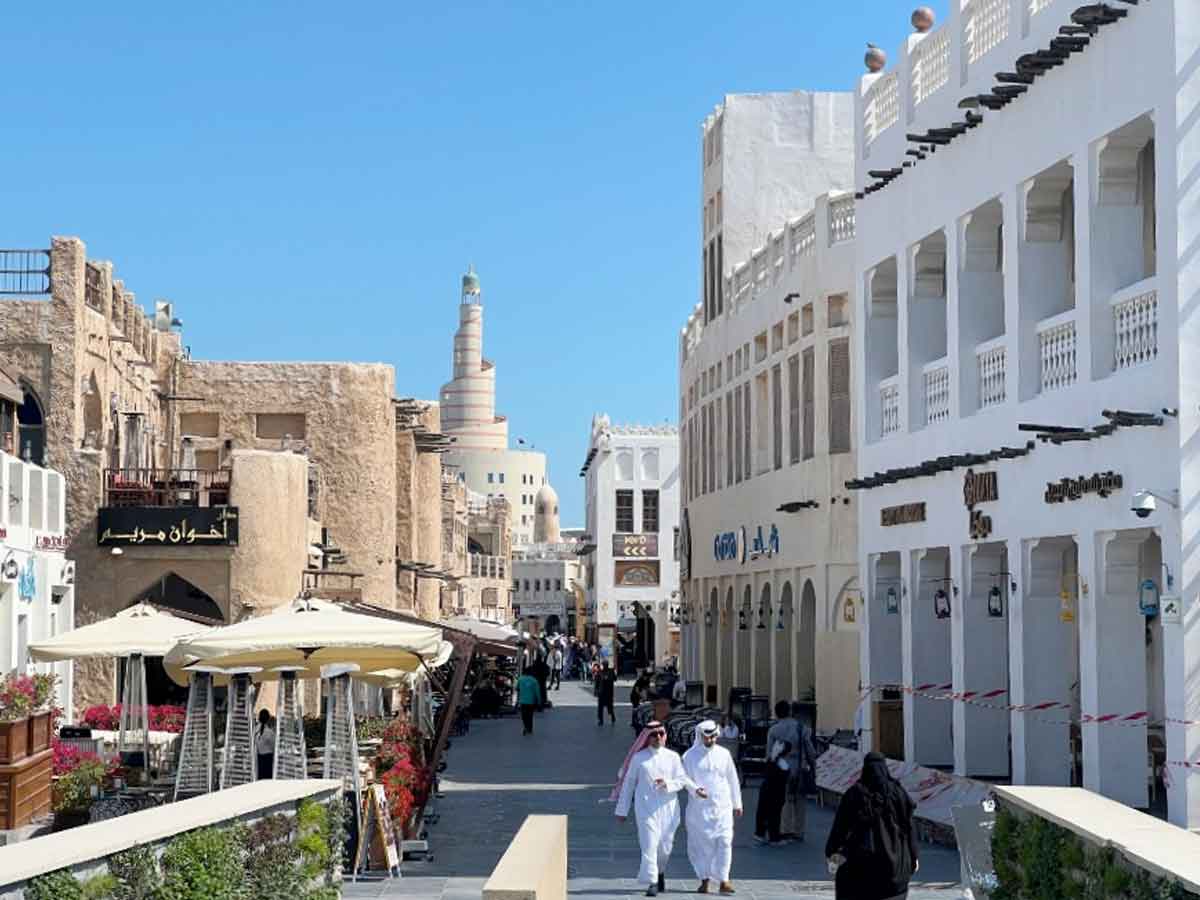卡塔尔文化 是一块丰富的传统挂毯, 现代性, 和根深蒂固的价值观, 受其地理位置影响, 历史, 和宗教. 位于阿拉伯半岛的东北海岸, 卡塔尔是一个具有重要文化认同的小国,反映了其贝都因人的根源, 伊斯兰信仰, 以及由于其石油和天然气财富而引起的快速现代化. 理解卡塔里文化意味着深入研究其社会规范, 家庭结构, 款待, 传统, 以及伊斯兰教对日常生活的影响.
卡塔里文化的历史背景
卡塔尔的文化与它的文化密切相关 贝都因人过去, 当该地区的土著人民过着游牧生活方式时, 穿越苛刻的沙漠. 贝都因传统强调款待, 机智, 并尊重部落隶属关系. 这过去, 虽然很远, 仍然塑造了当今卡塔尔社会的精神, 特别是在社会互动和社区纽带方面.
在20世纪发现石油之前, 卡塔尔的经济围绕着珍珠潜水, 钓鱼, 和小规模贸易. 该地区对海洋的隔离和依赖培养了一个紧密联系的社区. 20世纪中叶的石油发现带来了迅速的变化, 将卡塔尔转变为世界上最富有的国家之一,并刺激现代化. 尽管如此, 卡塔尔人与他们的文化遗产保持着牢固的联系, 确保传统仍然编织成日常生活的结构.
宗教及其在卡塔里文化中的作用
核心 卡塔尔文化 撒谎 伊斯兰教, 它不仅塑造宗教习俗,而且塑造社会习俗, 法律框架, 和日常互动. 伊斯兰教, 特别是逊尼派分支, 是卡塔尔的主要宗教, 伊斯兰教法已纳入法律体系, 影响生活的许多方面, 包括家庭法, 着装规范, 和性别角色.
清真寺是卡塔里社区的核心, 和祈祷的呼吁 (宣礼) 全天回声. 星期五, 穆斯林圣日, 特别重要, 在清真寺和企业关闭的企业中举行的公共祈祷.
伊斯兰教是卡塔里社会的统一力量, 它还促进了像 谦逊, 款待, 尊重长者, 和 慷慨, 这对于卡塔尔人如何相互互动以及与客人的互动至关重要. 卡塔里强调家庭价值观, 适中的衣服, 社会礼节源于伊斯兰教义, 鼓励人们平衡生活在信仰上, 家庭, 和社区.
卡塔里文化中的社会规范和价值观
家庭 是卡塔里社会的基石. 与许多西方文化不同, 个人经常被优先考虑, 卡塔里文化非常重视集体. 大家庭, 包括阿姨, 叔叔们, 表兄弟, 和祖父母, 在日常生活中起重要作用, 家庭忠诚至关重要. 婚姻经常安排, 或至少受到重大影响, 由家人, 和社交活动, 例如婚礼和聚会, 宏伟, 家族事务.
尊重长辈 是卡塔里文化中的另一个重要社会规范. 家庭或社区的年长成员受到极大的尊敬,他们的建议在决策中寻求. 在小组环境中向其他人致意, 为他们提供最好的座位, 首先为他们服务的是表现出尊重的常见实践.
卡塔尔社会保守, 和 谦逊 在行为和着装上受到高度重视. 女性, 尤其, 期望在公共场合谦虚, 大多数卡塔里妇女都穿着 长袍 (长长的黑色长袍) 和头巾, 或者 谢拉. 然而, 外国妇女不需要穿这些服装,但仍应穿着适度的衣服, 出于对当地习俗的尊重而掩盖肩膀和膝盖.
款待的重要性
热情好客 是卡塔里文化的关键特征, 反映其贝都因人的根. 在贝都因文化中, 向客人提供款待, 甚至陌生人, 被视为神圣的职责, 特别是考虑到残酷的沙漠环境,生存通常取决于别人的慷慨. 这种热情好客的传统仍然是现代卡塔里社会的核心.
卡塔尔的游客, 无论是商务还是休闲, 经常会亲身体验传奇的款待. 卡塔里斯以使客人感到欢迎和舒适而感到自豪, 经常提供 加瓦 (阿拉伯咖啡) 和 日期 作为热情款待的传统标志. 客人受到极大的尊重,经常被邀请参加餐点或社交聚会.
在更正式的环境中, 例如酒店或商业环境, 访客可以期望相同的仁慈和专心, 主持人竭尽全力确保积极的经历.
节日和庆祝活动
卡塔尔的文化也反映在其 节日和庆祝活动, 其中许多本质上是宗教的. 最重要的是 开斋节 和 古尔邦节, 这是在斋月和朝圣期间庆祝的, 分别. 这些节日涉及公共祈祷, 与家人和朋友的盛宴, 以及向儿童捐赠礼物和不幸的人.
国庆日 (12月18日) 是另一个重要的庆祝活动, 纪念卡塔尔的统一. 这是爱国自豪的一天, 与游行, 烟花, 和文化展示, 反映该国的遗产和现代成就.
卡塔里美食和餐饮习俗
卡塔里美食 反映该国的贝都因根和沿海地区. 传统菜肴丰盛.

卡塔尔的传统和文化令人着迷地融合了古代贝都因人的遗产, 伊斯兰教信仰, 充满活力的社区精神吸引您亲自探索和体验.
版权 2024 © 卡塔尔文化版权所有